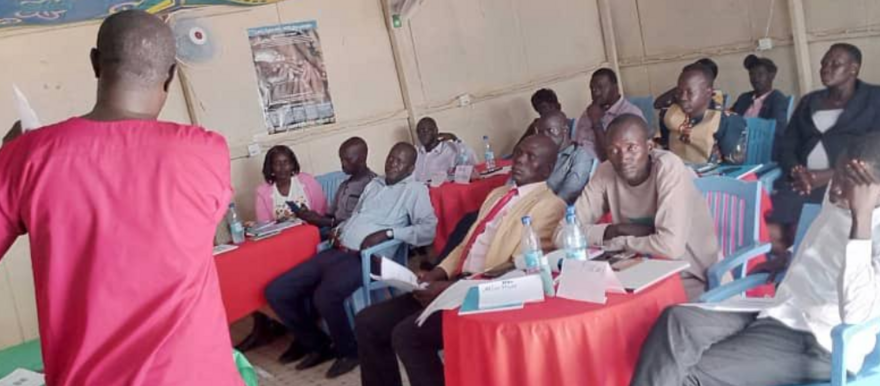The South Sudan HIV/AIDS Commission with support from UNMISS is conducting a 10-day HIV/AIDS sensitization and awareness-raising workshop in Rumbek in Lakes State.
The workshop which started on Friday is being attended by 25 participants drawn from state health ministry and Lakes State Legislative Assembly representatives.
The chairperson of the HIV/AIDS Commission in Lakes State, Priscilla Arop Malieny, told Radio Tamazuj over the weekend that the 10-day workshop is to promote dissemination and raise awareness about HIV/AIDS among health workers and state parliamentarians. She urged the participants to raise awareness about the HIV/AIDS pandemic in Lakes State within their communities.
“In my capacity as a chairperson of the HIV/AIDS Commission in Lakes State, I want to say that HIV/AIDS is a pandemic that has caused human suffering worldwide. In South Sudan, 2.5 percent of adults between 15 and 49 years are living with HIV/AID virus,” she said. “I would like to thank UNMISS and other partners who support combating this pandemic in Lakes State.”
Meanwhile, UNMISS’ team leader in charge of the protection, transition,, and reintegration section in the Rumbek field office, Caroline Opoka, urged the participants to carry out massive awareness in the community and disseminate information about how people should protect themselves from HIV/AID.
“In my tribe, we say God went and put poison where life comes from. In my perspective, that is where life comes from and death is also found, and it is very difficult,” she said. “During COVID-19, all of us washed our hands and covered our noses with face masks and COVID-19 went but HIV is complicated. Where we find HIV/AIDS is where we find life and I think that is where the challenge of AIDS comes from.”
According to Opoka, managing HIV/AIDS requires a holistic approach.
“In managing HIV/AIDS, we are managing people who are infected and we are managing people who are not infected with HIV/AIDS,” she explained. “So, when you are infected, everyone around you will get infected and this awareness is for the community outside there to know prevention.”




